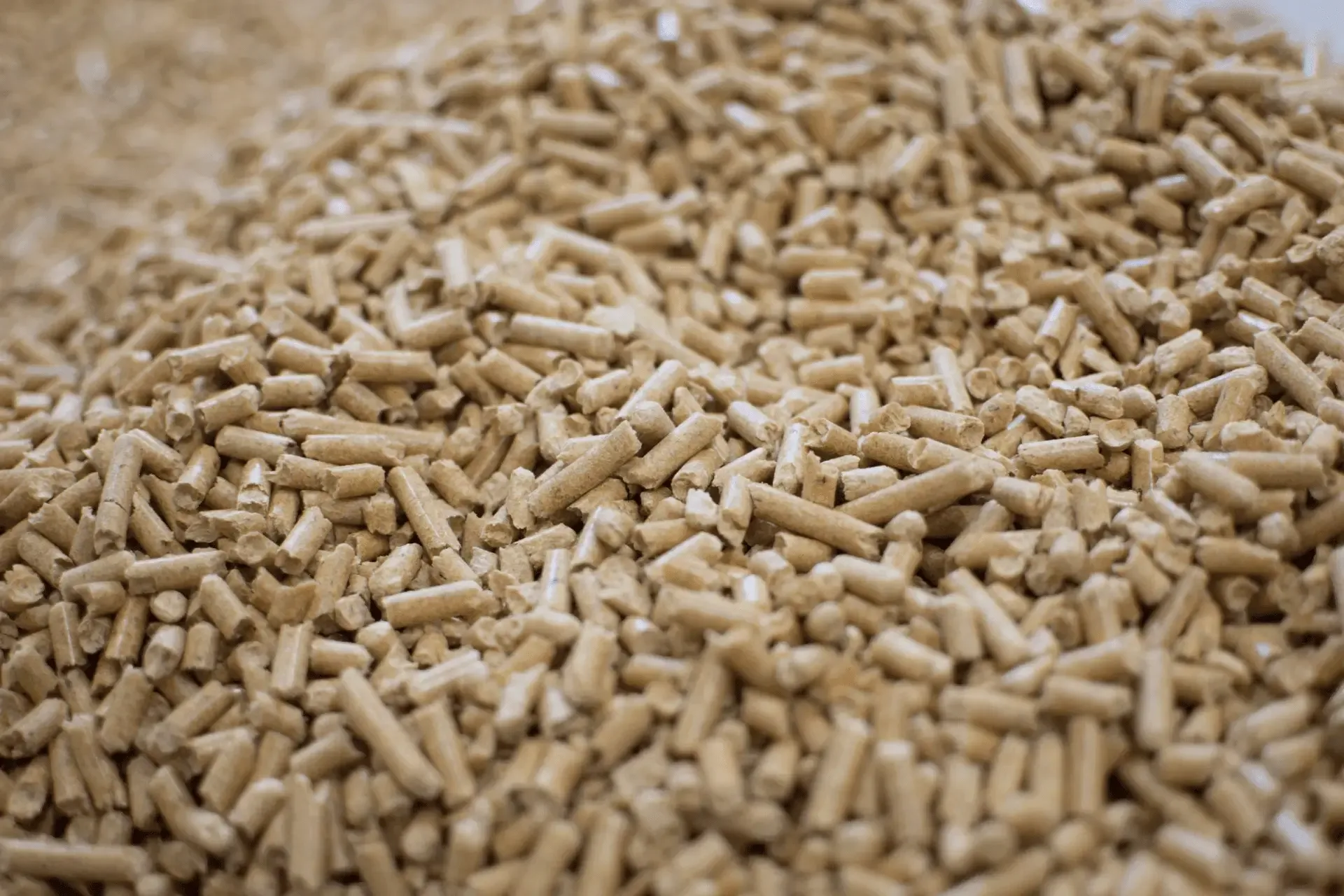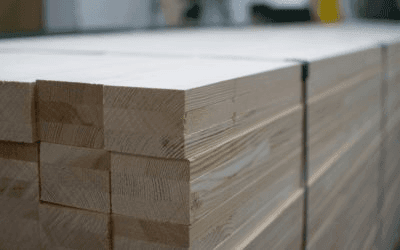Which pellets to choose and why it matters
Selecting the right pellets guarantees efficient heating and less maintenance work on your boiler. The best pellets combine high calorific value with low ash and moisture content. Well-chosen pellets burn evenly, generate more heat, and require less frequent furnace cleaning.
When choosing, pay attention to several parameters:
- Moisture content;
- Ash content;
- Density.
Pellets with low moisture content burn faster and more evenly, meaning more heat with less fuel consumption. Low ash content means less maintenance work on the boiler, while higher pellet density improves combustion properties.
Types of pellets – coniferous and deciduous pellets
Wood pellets can be produced from both coniferous trees, such as pine or spruce, and deciduous trees – for example, oak or beech. The main difference between these types is their calorific value and combustion characteristics. Pellets from coniferous wood contain more resins, which means higher calorific value and easy ignition. Deciduous wood pellets, on the other hand, have a denser structure, which translates to longer burning time and a stable flame.
The choice between coniferous and deciduous pellets depends on individual needs and the type of heating installation. Each has its advantages and disadvantages.
Want to know the current price of pine pellets? Contact us, and we’ll prepare an individual quote for the highest quality pellets just for you!
Advantages and disadvantages of coniferous pellets
Coniferous pellets are a popular choice among automatic boiler owners. Higher calorific value results from the presence of resins, which translates to more thermal energy from the same amount of fuel. Easy ignition and even combustion facilitate boiler operation, while wide availability makes coniferous wood pellets a frequently chosen option.
The disadvantage of this solution is the greater amount of ash and deposits resulting from resin combustion, which requires regular cleaning of the heating installation. Despite this, coniferous pellets remain an attractive solution for those who value convenience and quick heating effects.
Advantages and disadvantages of deciduous pellets
Deciduous pellets are distinguished by their long and stable burning time, which allows for even heating without sudden temperature fluctuations. Thanks to lower resin and sulfur content, burning deciduous wood pellets is more environmentally friendly and generates fewer pollutants.
The downside may be more difficult ignition and lower calorific value compared to coniferous pellets. For this reason, deciduous pellets are often used in fireplaces or where calm and long-lasting combustion is important.
What to look for when purchasing pellets?
Besides the type of wood, it’s also worth considering the quality of the fuel itself. Three parameters are important: granulation, moisture content, and calorific value. The market offers pellets with a diameter of 6 or 8 mm – thinner pellets work better in automatic boilers where even feeding is crucial.
Pellet moisture content should be below 10% to ensure even combustion and eliminate moisture problems in the feeder. Calorific value above 4.6 kWh/kg guarantees more heat and lower fuel consumption. Don’t forget about quality certificates, such as ENplus A1, which confirm you’re dealing with premium-class fuel.
Pellet Price vs. Quality – is it worth paying more?
Pellet prices vary depending on quality class and source of origin. Pine pellets may cost more if they’re produced from certified wood with high calorific value. Such an investment usually pays off – good pellets mean lower consumption and longer boiler life.
Cheaper pellets, while attractive in price, often contain more contaminants and have lower calorific value. This can lead to higher fuel consumption and increased operating costs. Therefore, the decision whether to choose cheaper or more expensive pellets should consider not only the price but also long-term heating efficiency.
Want to focus on quality and reliability? Check out ENVUN’s pellet offer – we provide coniferous and deciduous pellets of proven quality that combine high calorific value with ease of use.



